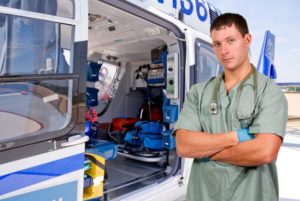Telemetry Travel nursing, also known as Progressive Care nursing, monitors patients with cardiac, respiratory, or renal issues. Patients are usually those who have recently stabilized enough to move out of a Critical Care Unit but still require close supervision. Because they are still high-risk, telemetry nurses need to assess and respond to a patient’s vitals as quickly and efficiently as possible and communicate well with patient care teams.
Telemetry is a highly fast-paced work environment suitable for natural problem solvers and quick thinkers. If you think this specialty is for you and you want to take it on the go, then here are a few challenges you might face during your travel nurse assignment.
Alarm Fatigue
Alarms notify nurses of potentially dangerous situations with their patients and require a quick response. Unfortunately, telemetry nurses hear the beeping of alarms so often that they can inadvertently tune out the sound. Too many false or non-actionable alarms can lead to distraction and the possibility of an actual alarm being ignored or missed. The noise can start to blend into the everyday workflow of the floor and create the opposite effect. Cardiac monitors are extremely sensitive, so a nurse doesn’t miss a true emergency. However, they can also contribute to many of the false alarms. It is important to stay vigilant of your surroundings. An alarm should never be turned down or off, so take a quick recess or step outside to break up the monotony you’re hearing.
Medical Complications
Telemetry nurses need to pay very close attention to detail for their patients. Sometimes their conditions can suddenly deteriorate and you need to be able to spot the problem. To keep your patients stable, you will have to watch EKGs and core vitals that may indicate signs of complications or risks. The unstable nature of the individuals in the telemetry unit requires you to be “on” at all times for every shift.
Learning Curve
Telemetry nursing has a learning curve since you have to know the information you are telling your patients. They need to be informed about their conditions, any changes to their health and what it means, and guidelines on any lifestyle adjustments they should make to prioritize their heart health. You also have to stay up to date on the latest technologies, medications, and overall practices and treatment plans for all kinds of cardiac patients. It is a lot to learn in a short period, and the time frame is even shorter for a travel nurse. Not all patients are the same and cannot be given the same regimen. However, it will help to do some research beforehand and have ideas and information ready.
Burnout
Burnout is an all too real challenge that can occur in any nurse specialty. It can occur after working too much or too hard. For telemetry nurses, being on high alert throughout shifts can be mentally and physically exhausting. If a nurse is feeling too overwhelmed, it can lead to chronic stress and manifest itself in various ways, like insomnia or a loss of appetite. Multiple factors can lead to feeling burnout, including exposure to death, grieving family members, or trying to keep up with the pace of your unit. The best way to combat burnout is to acknowledge it and take action immediately. How you feel can affect how you interact with your patients and staff. Talk to your family and friends back home, take up a new hobby, or just vent to a few trusted nurses that understand what you’re going through.
Telemetry nursing comes with its own set of challenges, but it is an extremely rewarding career path. If you’re still interested in this specialty, view our job board for exciting travel nurse jobs in the top travel nurse locations!

From a Staff Nurse to Travel Nurse: Everything You Need to Know to Expand Your Career
Travel nursing has been an in-demand career for years now, but the pandemic pushed demand for travel nurses to an all-time high. If you’re considering making the move to travel nursing, you’re bound to have certain questions. How does travel



